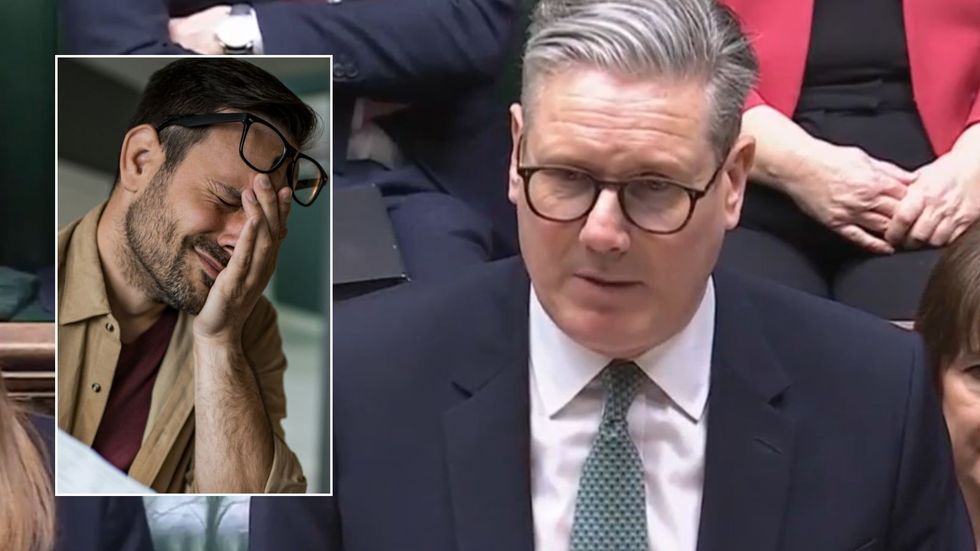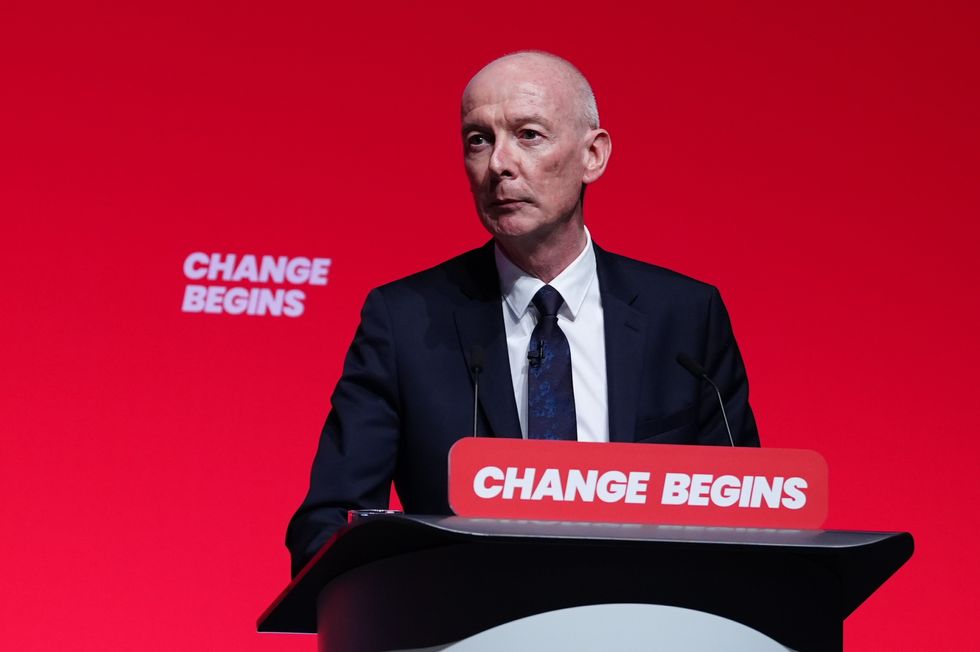UK tax hike warning as Starmer admits ‘difficult decisions’ to come after defence pledge
Sir Keir Starmer will be forced to hike taxes to cover Labour’s £13.4billion defence spending plans, analysts have warned.
Earlier this afternoon, Starmer confirmed cuts to the foreign aid budget in order to fund raising defence spending from 2.3 per cent to 2.5 per cent by 2027, with the “ambition” to hike this rate to three per cent by the end of the current Parliament.
Research from the Institute for Fiscal Studies (IFS) suggests the increase in defence spending would amount to around £6billion, rather than the £13.4billion claimed by the Prime Minister.
IFS associate director Ben Zaranko said: “If defence spending needs to go higher than 2.5 per cent of GDP, cuts to aid won’t be enough.
“Getting towards three per cent of GDP will eventually mean more tough choices and sacrifices elsewhere – whether higher taxes, or cuts to other bits of Government.
“As a minor note to what is a major announcement, the Prime Minister followed in the steps of the last Government by announcing a misleadingly large figure for the ‘extra’ defence spending this announcement entails.
Do you have a money story you’d like to share? Get in touch by emailing money@gbnews.uk.

“An extra 0.2 per cent of GDP is around £6billion, and this is the size of the cut to the aid budget. Yet he trumpeted a £13billion increase in defence spending.
“It’s hard to be certain without more detail from the Treasury, but this figure only seems to make sense if one thinks the defence budget would otherwise have been frozen in cash terms.”
When queried by Conservative Party leader Kemi Badenoch, the Prime Minister clarified that tax rates will not need to rise to pay for the defence spending increase to 2.5 per cent of gross domestic product (GDP) in the next two years.
Starmer said: “She asks me if we’re going to tax to pay for the 2.5 per cent or to borrow to pay for the 2.5 per cent, the answer to that is no which is why I’ve set out precisely pound for pound how we will pay for it today.

“That has meant a very difficult decision on overseas development, a very difficult decision and not a decision I wanted to take or that I’m happy to take.”
While the Government appears to have accounted for how defence spending will be paid for by 2027, analysts are noting the jump to three per cent of GDP has yet to be explained.
Speaking to GB News, Lieutenant Stuart Crawford praised the Government’s latest move but warned that “deeply unpopular” decisions will need to be met.
He claimed: “The short term solution seems to have been to cut the aid budget and people may find that distasteful, but I feel it’s the best move.
“But, in the longer term, I can’t see any other option for taxes to increase and that includes income tax. Of course, that is deeply unpopular with the electorate.”
Chancellor Rachel Reeves is already under fire from farmers and the business community over her tax decisions that were announced in last year’s Autumn Budget.
LATEST DEVELOPMENTS:
- Rachel Reeves implored to take ‘urgent action’ as state pension in firing line of ‘retirement tax’
- Store closures warning: ANOTHER retailer shuts locations ahead of Reeves’s tax raid
- Rachel Reeves’s ‘triple whammy’ tax raid to lead to ‘tsunami of closures’ across UK pharmacies

Following Starmer’s speech in the House of Commons, a senior Cabinet minister said there is “no easy way” to find the funding to boost defence.
“There’ll be people who say, You shouldn’t fund it that way. They then, of course, have to answer, ‘Well, how should it be funded?’ There is no easy way to do this,” Pat McFadden told the BBC.
He added: “People will say, you should have done this through more tax, or you should have done this through more borrowing, or you should have done this through some undefined way that they don’t really want to define, but you shouldn’t have done it the way that you’re doing it.
“I expect all those arguments. And look, this isn’t easy, because I do understand the connection between hard power and soft power.”

